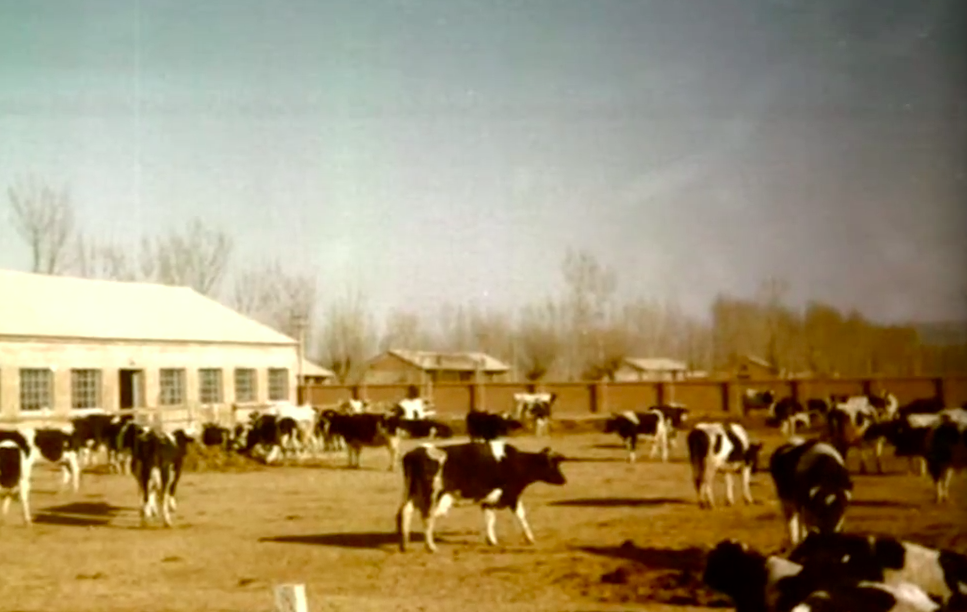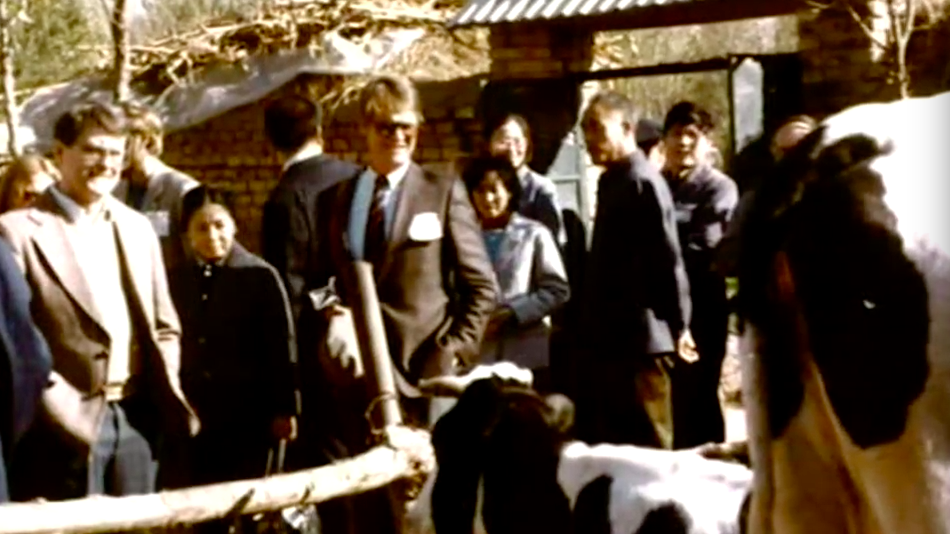
WFP experts helped boost China's dairy industry in the 1980s. / Photo via World Food Program
WFP experts helped boost China's dairy industry in the 1980s. / Photo via World Food Program
Long gone are the days when hundreds of millions of Chinese were trapped in poverty, even hunger. It's too easy to forget that as recently as the 1980s, some 30 percent of the population – nearly 300 million Chinese – were deemed undernourished. A daily necessity like milk was then a luxury, which you could only purchase with coupons as China's milk provision was just three kilograms per person for a whole year.
When the Chinese government was trying hard to increase its agricultural production and enrich market supply, it also received help from overseas.
As the largest humanitarian agency against hunger worldwide under the UN framework, the World Food Program (WFP) established its Beijing office 40 years ago. Between 1984 and 1989, a WFP project was carried out to provide milk to Chinese people.
"At that time, in China milk was provided in state farms and distributed through government dairies," said Trevor Page, Former Representative of the WFP China Office who took part in the project in the 1980s. "WFP provided dried skimmed milk powder and butter oil which was combined with fresh milk and sold to the public. Funds generated from the sale were used to finance China's own dairy industry."

WFP experts helped boost China's dairy industry in the 1980s. / Photo via World Food Program
WFP experts helped boost China's dairy industry in the 1980s. / Photo via World Food Program
This project was the largest program of its kind in the world at that time with an overall cost of 77 million U.S. dollars. The WFP designated six pilot cities in China: namely, Beijing, Tianjin, Xi'an, Shanghai, Nanjing and Wuhan, and provided a total of 4,500 tons of skimmed milk powder and around 1,300 tons of butter oil, benefiting around three million local people. The supplies from the WFP was also used to balance the milk provision throughout the year.
With the government effort and support from international organizations, the dairy industry in China gradually soared to a higher level.
"My mother was not in good health. At that time, she needed coupons to exchange for milk. But after I came to work for this milk company, I saw milk production gradually meet market demand. People don't have to use coupons any more," Bai Suqin, a beneficiary of the WFP said.
Almost 30 years later, what we are looking at now is a completely different picture. Official data from the National Bureau of Statistics says Chinese dairy production in 2018 reached around 31 million tons, almost ten times that of 1980.
"Today, milk is available all over China. Certainly, China has a flourishing dairy industry," said Page.

China's dairy industry was underdeveloped in the 1980s. / Photo via World Food Program
China's dairy industry was underdeveloped in the 1980s. / Photo via World Food Program
Talking about the achievements China has made in the past four decades, officials from the WFP spoke highly of China's development and its implications for other countries in the world.
"China now is a very shining example of the world in poverty reduction and food safety improvement," said Qu Sixi, the current representative of the WFP China Office, who emphasized the tremendous amount of efforts made by the Chinese government in this regard.
With a well-shaped dairy industry, China is now actively helping others to get out of the dilemma that China once faced. By sending expertise overseas and co-leading projects with organizations like the WFP, China is making its own contributions to global dairy development.
Talking about the prospect of further future cooperation, Qu said China is no longer a recipient country of WFP assistance, but an important donor and partner of the WFP.
"We are engaging in South-South cooperation to share China's expertise and experience to other developing countries. In this regard, China would be very helpful," he said.